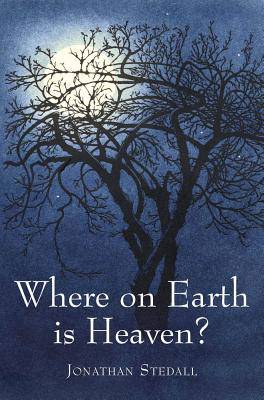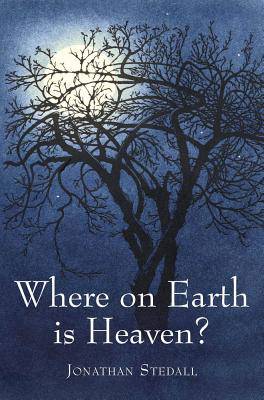
- Retrait gratuit dans votre magasin Club
- 7.000.000 titres dans notre catalogue
- Payer en toute sécurité
- Toujours un magasin près de chez vous
- Retrait gratuit dans votre magasin Club
- 7.000.0000 titres dans notre catalogue
- Payer en toute sécurité
- Toujours un magasin près de chez vous
Description
"To read this book is like sitting by a fire on a long winter's evening, listening with delight to a friend of many years who has thought deeply about life's mysteries, and who is now looking back on his life's journey to share, modestly and without pretension, its accumulated wisdom. This is a deeply humane book, by a deeply humane man. But it is also more than that." -- Richard Tarnas (the foreword)
Where on Earth Is Heaven? is a response to the author's young son once asking exactly that. For Jonathan Stedall, what lies behind this question has motivated his long career as a distinguished documentary director. He has worked with some of the most original and thoughtful minds of our time. His films--on Tolstoy, Gandhi, Jung, as well as the cultural and spiritual initiatives inspired by Rudolf Steiner--have been milestones on his journey of exploration, as have insights of Pierre Teilhard de Chardin and Ralph Waldo Emerson.
Stedall explores challenging questions about living and dying, looking and seeing, Heaven and Earth, and our human potential. He draws on forty years film-making experience--mostly with the BBC--working with inspired artists, scientists, and writers such as John Betjeman, Laurens van der Post, Fritz Schumacher, Bernard Lovell, Malcolm Muggeridge, Alan Bennett, Fritjof Capra, Cecil Collins, Ben Okri, and Mark Tully.
Along the way, he has also pondered deeply on the notion of the human being as a microcosm of the macrocosm, the meaning of eternity as "the everlasting now," the role of the holy fool, and the redemptive power of love. Above all, he has been increasingly absorbed not just by what is "seen," but also by what is "unseen."
The author's quest--whether in the African bush, in the streets of San Francisco, among the hill temples of northern India, or in the lanes of Cornwall--has been enriched enormously by his encounters with so-called ordinary men and women who have struggled not only to cope with the trials and joys of life, but also to find meaning in life--meaning that transforms the dualism inherent in phrases such as "spirit and matter," "life and death," and "Heaven and Earth."
Spécifications
Parties prenantes
- Auteur(s) :
- Editeur:
Contenu
- Nombre de pages :
- 592
- Langue:
- Anglais
- Collection :
Caractéristiques
- EAN:
- 9781903458907
- Date de parution :
- 20-11-09
- Format:
- Livre relié
- Format numérique:
- Ongenaaid / garenloos gebonden
- Dimensions :
- 160 mm x 236 mm
- Poids :
- 1088 g

Les avis
Nous publions uniquement les avis qui respectent les conditions requises. Consultez nos conditions pour les avis.






